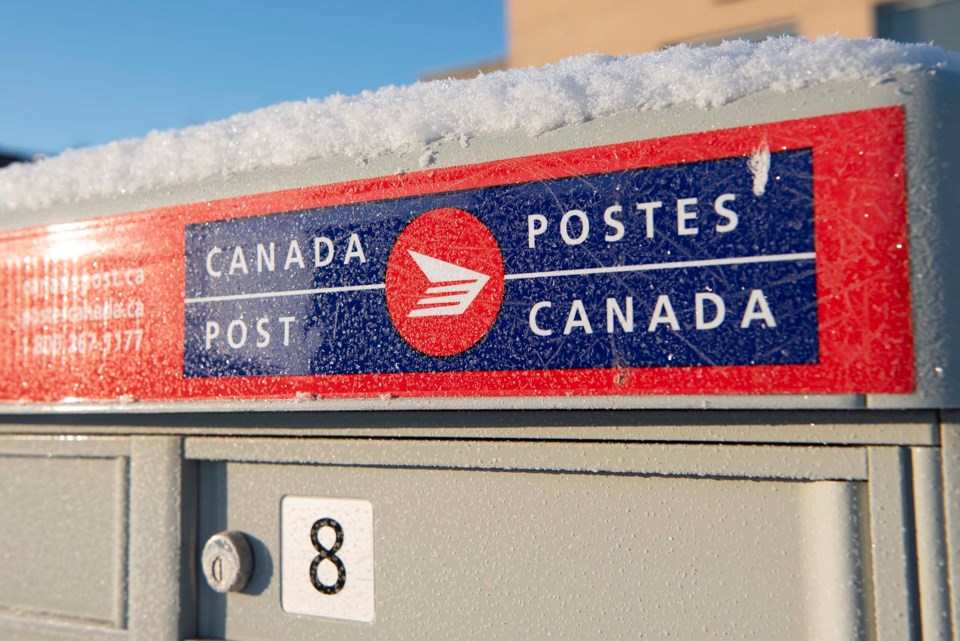Postal workers are back on the job this week in St. Albert as a month-long Canada Post strike comes to an end.
The Canada Industrial Relations Board issued a ruling Dec. 16 ordering the Canadian Union of Postal Workers (CUPW) back to work as of Dec. 17.
CUPW members have been on strike since Nov. 15 due to a labour dispute with Canada Post, bringing the nation’s main method of mail and package delivery to a halt.
Federal Labour Minister Steven MacKinnon sent the dispute to the industrial relations board on Friday Dec. 13 with instructions to end the strike if the board determined the dispute was unlikely to be resolved soon. The board issued its ruling after a two-day hearing held over the weekend. The ruling extends the union’s current collective agreement until May 22, 2025.
In a media release, Canada Post said staff would work their way through backlogged mail and packages starting Dec. 17. The postal system would start accepting new commercial deliveries by Dec. 19, and new international mail by Dec. 23. Canadians should expect delayed deliveries from now until sometime in January 2025.
In a Dec. 16 statement, Carl Girouard, national grievance officer for the CUPW, said the board’s decision was “disappointing to say the least,” and vowed to challenge the constitutionality of MacKinnon’s actions this January. He noted that the board ordered Canada Post to implement the five per cent wage hike the company had featured in its last offer for the first year of the union’s collective agreements, and that the hike would be retroactive to January 2024 for rural workers and February 2024 for urban ones.
James Ball, president of CUPW Local 730 (which represents St. Albert’s postal workers), could not be reached for comment on the end of the strike by press deadline.
In a Dec. 14 statement, Ball said the board’s decision was “worse than binding arbitration” as it could allow for a new majority government to be elected and potential back-to-work legislation.
“It will continue to crush our rights and force us to become slaves in the new economy of eight-hour work weeks and no benefits, pensions, or pay increase,” he said.
Businesses relieved
News of the end of the strike came as a relief to St. Albert and District Chamber of Commerce chair Rosanna Fischer. She said the strike came at the worst possible time for many businesses, and forced them to spend significant funds to find other methods of mail delivery. The strike also likely cost postal workers a lot of public sympathy they wouldn’t have lost had this strike happened at any other time of year.
“It’s been crippling for a lot of businesses,” Fischer said, not to mention the effects on seniors and overseas Canadians awaiting Christmas cards in the mail.
“There’s a lot of lonely people out there this year.”
Eric Whitehead of St. Albert’s Untamed Feast said the strike likely cost his company $30,000 in lost sales and many hours of work spent setting up alternative delivery methods, “not to mention all the unhappy customers that are still having stuff in the mail.” About 30 per cent of his company’s sales typically happen in November and December.
Whitehead said that while he looked forward to getting some of the many payments he had coming in the mail now that the strike was over, the end of the strike came too late to save his company’s Christmas sales. While he planned to continue using Canada Post out of necessity (as many regions were not served by couriers), he said for many businessowners, the end to this strike was a case of too little, too late.
“I’d say the majority of small businesses who’ve dealt with Canada Post in the past probably won’t go back.”
Updates on Canada Post service can be found at www.canadapost-postescanada.ca.



